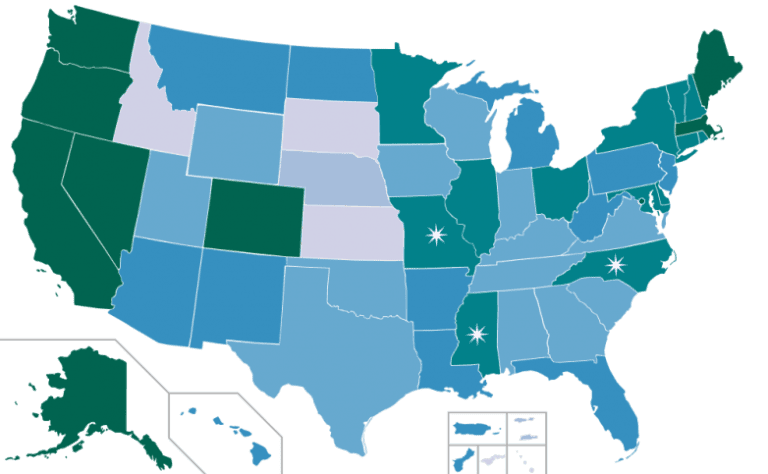A growing number of states, including as of the turn of the year California, have legalized marijuana. But the drug is still illegal under federal law. That conflict between the two jurisdictions is shaping up as a test case for federalism, the constitutional system by which sovereign states coming together under a central government.
President Obama issued a memo instructing the Justice Department not to prosecute marijuana violations in states that had legalized the drug. But now Attorney General Jeff Sessions, known as an opponent of liberalized drug laws, has rescinded that order.
The details of his new enforcement policy have not been released, but the Sessions ruling sets up a clash between states’ rights and the authority of the federal government.
Currently, recreational marijuana use is legal in Alaska, Washington, Oregon, California, Nevada, Colorado, the District of Columbia, and in July Massachusetts. (Maine has passed a legalization bill that was vetoed by its Democratic governor, citing concern about the federal law.)
In 2018, more states will be considering legalizing recreational marijuana laws: Vermont, Delaware, Connecticut, Rhode Island, New Jersey, Michigan, and Ohio.
Twenty-nine states have already legalized the drug for medical use. In 2018, more states will consider that step: Oklahoma, Missouri, Kentucky, South Dakota, and Utah.
So it’s likely that the entire West coast and very likely New England (except for New Hampshire) will have legal marijuana by the end of the year, with significant inroads in the West and the Midwest. Meanwhile, the majority of states already have medical marijuana, with some of the most conservative states in the union poised to join them.
So if the Trump administration decides to enforce federal anti-marijuana laws in states that have legalized the drug, where does that leave us?
Conservatives generally favor states’ rights over intrusions of the centralized government. Will conservative opponents of marijuana legalization still defend states’ rights when it comes to marijuana?
Conversely, liberals tend NOT to support states’ rights, believing that the federal government should have jurisdiction. Will liberal supporters of legalized marijuana be consistent in opposing states’ rights when it comes to marijuana?
The issue could be a test case for defining a genuine federalism, with ramifications for many other laws and policies as well.
I predict, though, that the opportunity to sort out these conflicts in the courts will be sidestepped when the federal government itself legalizes marijuana, or, more likely, passes a law that formally allows states to do so.
And since acceptance of marijuana has become largely a bipartisan issue–with many conservatives, thanks to the libertarians in their midst, finding rare agreement with social liberals–I predict that the Republican-led House and Senate, with the support of President Trump (who won’t mind undercutting his attorney general) will take that action later this year.
(See also our earlier posts, “National Legalization of Marijuana as the Next Big Political Issue” and “Conservatives–and Christians?–for Marijuana Legalization.”)
Illustration of U.S. Map color-coded to marijuana laws by Lokal_Profil [CC BY-SA 2.5 (https://creativecommons.org/licenses/by-sa/2.5)], via Wikimedia Commons. [Go to the site for the key.]













